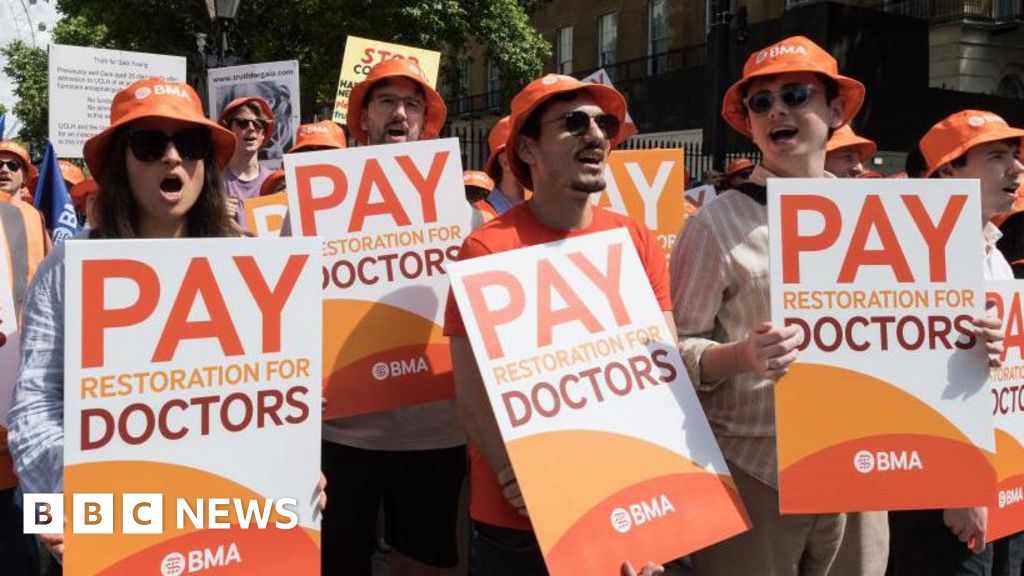Railway staff, train drivers, doctors and teachers are just some of the groups that have staged walk outs in recent times.
The walk outs across different sectors and industries over the past couple of years have resulted in more than 5.7 million working days have been lost, the highest number for more than 30 years, according to official figures.
Ministers argue that by making it easier for unions to organise, it would lead to a more co-operative relationship with employers and lessen the need for industrial action.
The government is proposing to also abolish the requirement that 50% of a workforce turns out to vote.
It is looking to get rid of the rule that for “important public services” such as the NHS, some 40% of the workforce must have voted in favour of industrial action for it to go ahead.
The BBC has contacted the Conservative Party for comment over the proposals.
Deputy Prime Minister Angela Rayner, said the government’s policies under the Employment Rights Bill were aimed at “repealing the anti-worker, anti-union laws, and turning the page on industrial relations”.
The Employment Rights Bill is a major shake-up of workers’ rights, but the reforms proposed are still being worked out and it is still unclear how some will work in practice.
Conservative Shadow Business Secretary, Kevin Hollinrake, has urged the government to withdraw the Employment Rights Bill and “think again”.
He said the proposed legislation created “existential crisis of a magnitude not seen since the pandemic” for jobs and business people.
The government’s own analysis released earlier this week said Labour’s plans to upgrade workers’ rights would cost businesses up to £5bn a year to implement.
Credit: Source link






![Holistic Marketing Works — Here’s How You Can Apply It to Your Campaigns [+ Expert Tips] Holistic Marketing Works — Here’s How You Can Apply It to Your Campaigns [+ Expert Tips]](https://knowledge.hubspot.com/hubfs/holistic-marketing-1-20241114-5175552.webp)



